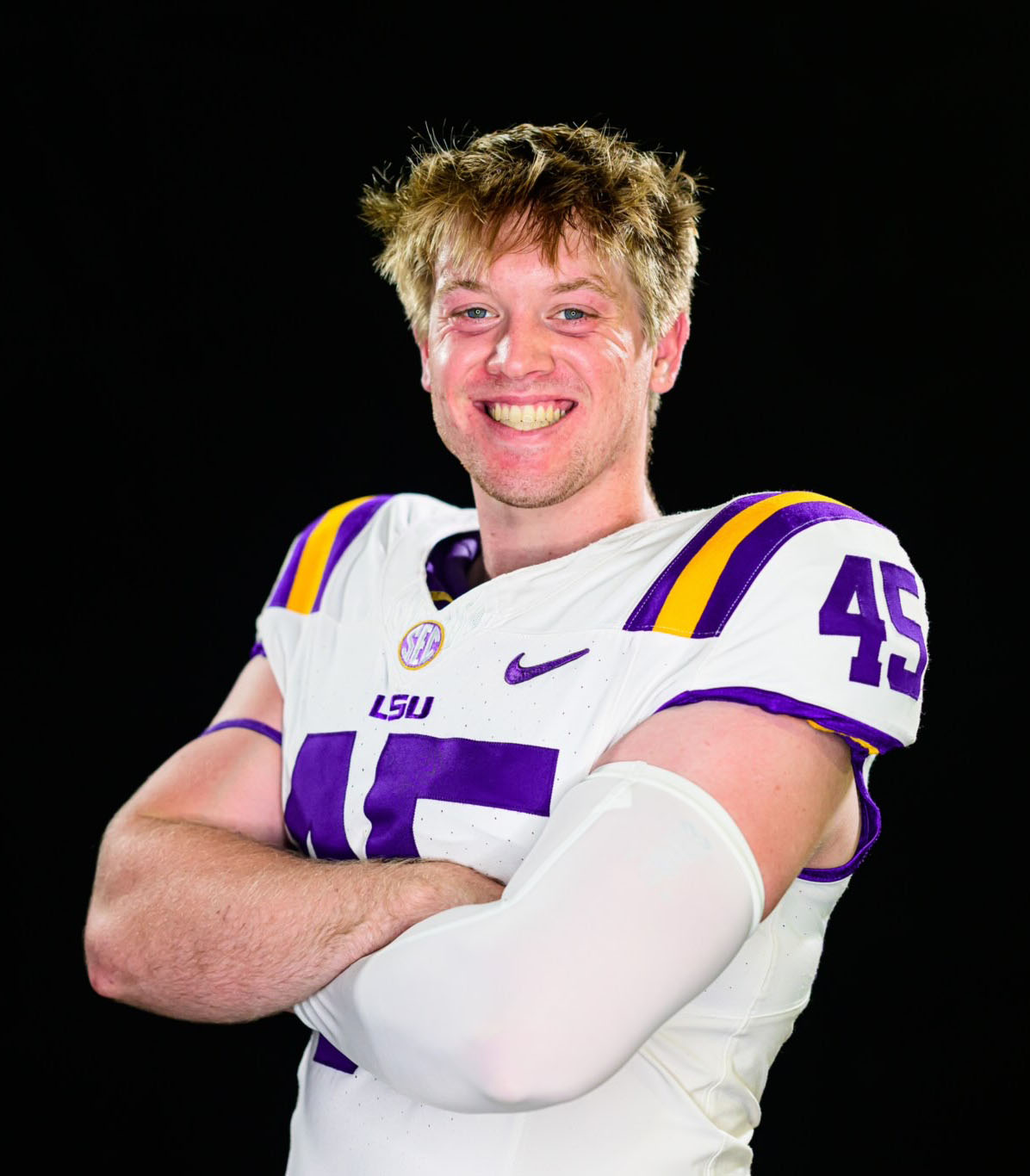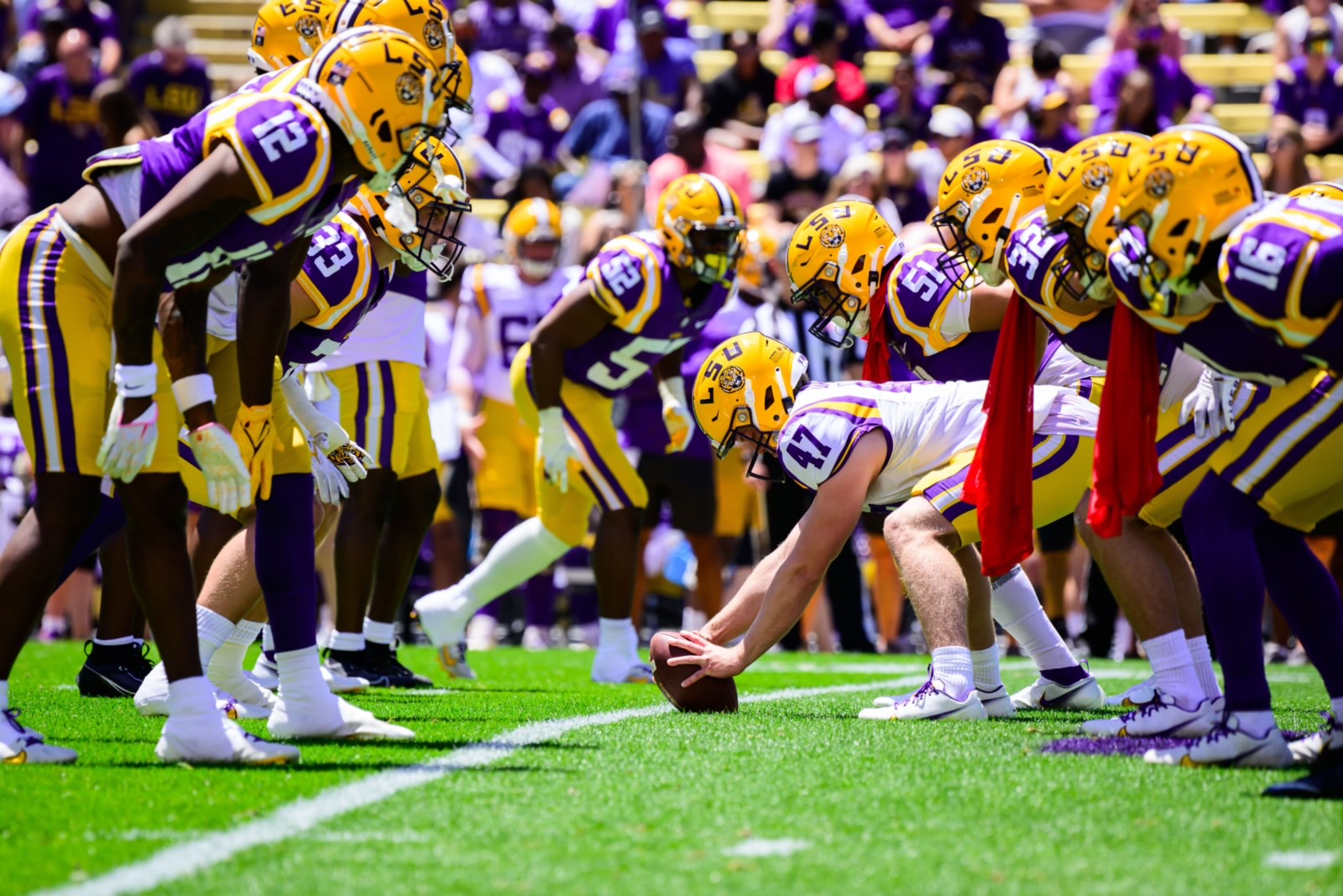In Football and Sepsis Research, LSU’s Jake Davis Finds Precision and Teamwork Equal Success
September 06, 2024
LSU student Jake Davis is a true team player.
Not only is the Austin, Texas, native a member of the LSU football team, but he is also part of the team transforming healthcare for the better as part of the research behind a new test that diagnoses sepsis in minutes.

Jake Davis
“I am on a team as an athlete here, but I'm also on a team pursuing sepsis research that will have a big impact on people's lives around the country and around the world,” Davis said. “Teamwork is obviously a really big thing in athletics. So that has made working with other people really easy."
As a long snapper, Davis must snap the ball precisely to the punter or holder so they can do their job well. That level of precision and innate teamwork translates well to research.
“A very small miss, like something being off by about a centimeter, could cause the snap to go awry. That has helped my focus and research be precise and picky about how I am pursuing things, knowing that it'll have large implications in the future.”
Davis, who will graduate early in 2025 with a degree in biochemistry, learned about sepsis research and of the project’s lead researcher, Dr. Bud O’Neal, while attending a fundraiser.
EXPLORE LSU'S Biochemistry PROGRAM
“I met Dr. O'Neal through the marketing director of Our Lady of the Lake Health. We were attending an NILSU fundraiser and he put me in contact with Dr. O’Neal,” Davis said.
Bud O’Neal is the national principal investigator who led to the creation of an FDA-cleared test for Sepsis called IntelliSep. An LSU alum, along with his wife, Dr. Katie O’Neal, who is the associate professor of clinical medicine specializing in infectious diseases at LSU Health, he is the medical research director of Our Lady of the Lake Regional Medical Center and associate professor at LSU Health Sciences Center in Baton Rouge.
“I had dinner at the O’Neal’s house with their family. I spoke with them for three or four hours about different career paths with what I was wanting to do. They kind of pushed me to look at the medical side of things,” Davis said.
Davis said that’s when he also learned about the research being done to diagnose sepsis.
Learn how LSU is Helping Prevent Sepsis Deaths
“Dr. O’Neal had me read a handful of different sources last year. So, in the mornings before (football) practice, I would get up at 6, read different studies and look at data for two hours. Since then, he has assigned me to look at a specific subset of his patients to see if there are any trends for patients getting sepsis and how they should handle that subgroup. So, the test is saving lives. They're using it, it's effective,” Davis said.
So how does Davis balance his research responsibilities, his studies and his football schedule?
“I have a pretty detailed planner that I write out every week. I have to stay on top of assignments because I am taking 15 hours of 4000 level bio classes. They have a lot of work. I have to make sure that I'm on top of studying for exams,” Davis said.

His focus, hard work, and pursuit of greatness can be found on and off the field.
“Coach Kelly’s motto is ‘Graduate Champions.’ Not only are we looking to win championships, he also wants us to graduate and pursue academic feats. LSU is not just an athletic school. When you come here as a student-athlete, you are expected to excel in the classroom,” Davis said.
After graduation, Davis plans to attend medical school so he can work directly with patients.
“I think it will be much more rewarding to have a firsthand influence on different people who are dealing with the conditions I'm looking to study. And with the research that I'm doing right now with Dr. O’Neal, it is kind of proof that you can do both research and clinical practice,” Davis said.
Davis added that he never thought he’d be involved in this type of important research as an undergraduate student but has found the work and its direct impact on people very rewarding.
“Sepsis is one of the deadliest conditions in the U. S. right now. So, it's obviously very important and will be very helpful in the future for doctors to know how to better treat their patients.”
Next Steps
Let LSU put you on a path to success! With 330+ undergraduate programs, 70 master's programs, and over 50 doctoral programs, we have a degree for you.


